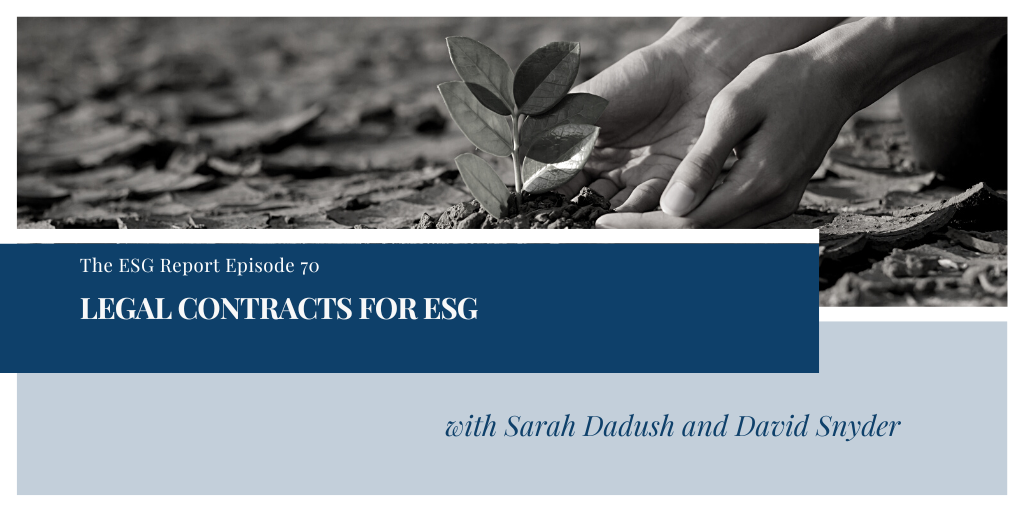
Tom Fox welcomes to this episode of the ESG Report. They are both law professors with backgrounds in human rights. In this conversation, they join Tom Fox to talk about the role of contracting in ESG.
Robust Supplier Codes of Conduct
Tom asks what steps are being taken to build more robust contract clauses. David explains that the process is still fairly in its initial state. Business lawyers have only recently adopted policies against forced labor and child labor. Lawyers are advising their clients to sign on to these policies, which is only one of the first few steps. Getting them implemented, however, is the true challenge. “The policies sit there in the corporate minutes, and unless they’re in the contracts, they’re not going to be implemented,” David says. These policies need to be in operation. “To get them implemented, to get them operationalized, they need to be in the contracts.”
Human Rights, Model Clauses & ESG
“Part of the history of ESG is focusing on equipping consumers to make choices that are more and more aligned with their values,” Sarah tells Tom. This has expanded to include not only consumers but investors, thus bringing in more money and leverage to influence corporate behavior. The S in ESG comes into play with model clauses because it looks at human rights and employee rights. “Our focus within the model contract laws is on worker protection,” Sarah remarks. “We tend to think often of things like child labor, trafficked labor, forced labor in various shades. What we are including or addressing specifically in the model contract laws is worker conditions.”
Model Clauses & Regulatory Obligations
Tom asks if model clauses can help companies meet their regulatory requirements. With model contract clauses in place, human rights due diligence are going to be more effective, David and Sarah agree. “They show the regulators that you are serious about doing something about this,” David remarks. However, model contracts need to be put into place. If they are signed but not acted upon, all you have is paper. “Once you’ve agreed to this human rights due diligence or a due diligence regime, and then we also have clauses about sharing information and generating documentation, then you are going to be able to document what you have done,” David adds.
Sharing information will result in communication and documentation of what’s going on at the company.
Resources
Sarah Dadush | LinkedIn
David Snyder | LinkedIn


